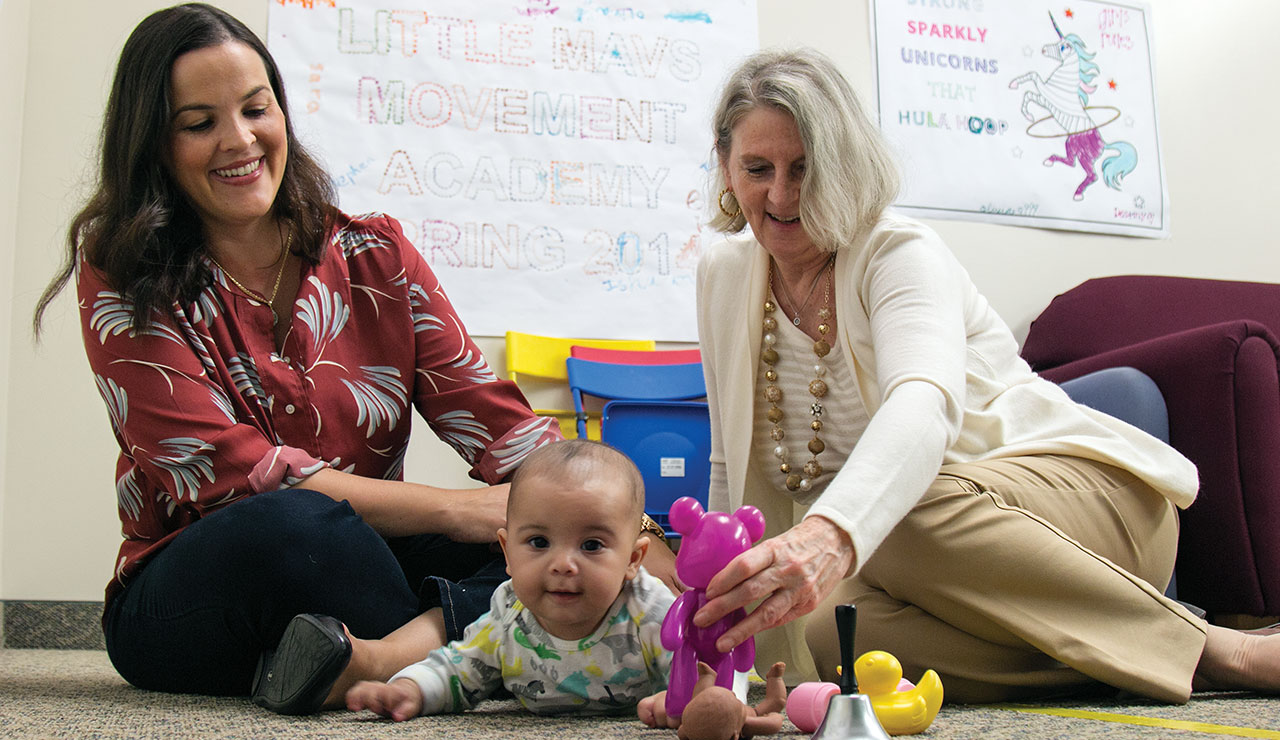
Faculty Rounds
Priscila Caçola (left) and Cheryl Anderson play with a baby in a campus lab area.
When Love is a Battlefield
Two faculty members look at PTSD in new moms
Most everyone is familiar with post-traumatic stress disorder (PTSD) in war veterans or police officers. But few people are aware that new mothers may experience PTSD, particularly mothers of premature and low birth-weight infants.
Two faculty members, Cheryl Anderson, associate professor of nursing, and Priscila Caçola, assistant professor of kinesiology, are working to tackle this malady. They are developing a pilot study for an intervention that will be tested on 40 new adult mothers and their infants. The two will make home visits and perform assessments of the mothers and infants over an 18-month period.
Mothers with premature infants often develop symptoms of depression and potential PTSD. Their babies are also more likely to have developmental delays, says Dr. Caçola, an expert on infant motor skills.
Numerous published studies have focused on PTSD among adult childbearing women, but only a few studies have tested interventions to reduce symptoms of birth trauma and PTSD.
"We anticipate that the intervention will reduce the mothers' PTSD symptoms and improve the infants' developmental skills," says Caçola.
Dr. Anderson, who has published articles in several scholarly journals on birth trauma and depression among adolescents and adults, says a few hospitals are starting to look for symptoms of depressions in new mothers, but not for symptoms that could lead to PTSD.
"Because symptoms suggesting later PTSD are missed, treatment is misdirected," says Anderson.
Eventually, this study could help adolescent and teenage mothers. If the intervention works successfully with adults, it will be tested on a group of adolescents for improvement in their mental health.
